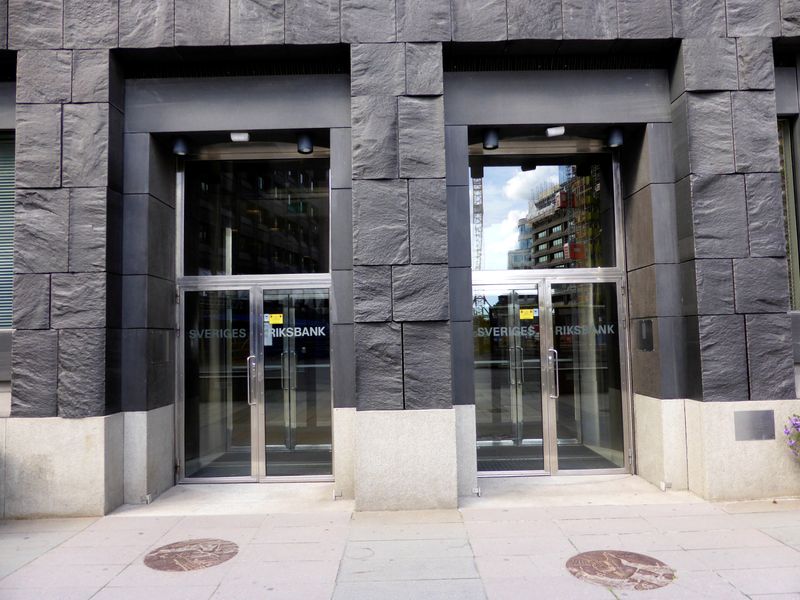Swedish central bank calls on banks to restrict dividends as risks rise
2022.11.09 05:27
[ad_1]

© Reuters. FILE PHOTO: A view of an entrance at Sweden’s central bank in Stockholm, Sweden, August 12, 2016. REUTERS/Violette Goarant
STOCKHOLM (Reuters) – High inflation and the war in Ukraine have increased risks in Sweden’s financial system and banks should strengthen their resilience by clamping down on dividends, the central bank said in a regular report on financial stability on Wednesday.
The central bank said the biggest risk to banks was their exposure to highly indebted commercial property companies, but added high levels of household debt were also a problem.
“The economic development entails an increased risk for major credit losses among major Swedish banks,” the central bank said in a regular report on financial stability.
“Since the risks have now increased, the Riksbank considers that the banks should be restrictive with regard to large dividend payments and share buybacks.”
Sweden’s economy has grown strongly this year despite inflation running close to 10% while rising interest rates have pushed up banks’ income from lending to businesses and households.
Profits at Sweden’s major lenders – Swedbank, Nordea, Handelsbanken and SEB – have soared in recent quarters, but there are clouds on the horizon with most economists expecting growth to slow significantly next year.
In a recent forecast, banking group Nordea said it expected gross domestic product (GDP) to contract 2.0% in 2023.
The commercial real estate sector has heavily increased its borrowing over the last 10 years, with debt rising to 2,300 billion Swedish crowns ($215 billion) in 2021 – around 42% of GDP – from 1.3 billion in 2012, according to the Riksbank.
Property companies make up about 43% of banks’ corporate lending.
A credit squeeze would force companies to cut back on investment, hitting construction and economic growth. It could also lead to big write-downs on property values.
“In the worst case, higher borrowing costs could lead to property companies defaulting on their payments,” the Riksbank said in its report.
Higher interest rates and inflation have already hit the housing market with prices expected to fall 20% by next summer from their peak in spring this year.
Although the labour market remains strong, unemployment is expected to rise and some households will struggle to cope with higher mortgage costs and soaring food and energy bills.
Shares in Sweden’s major banks traded lower on Wednesday, reflecting a fall in the wider European index.
($1 = 10.7591 Swedish crowns)
[ad_2]
Source link








